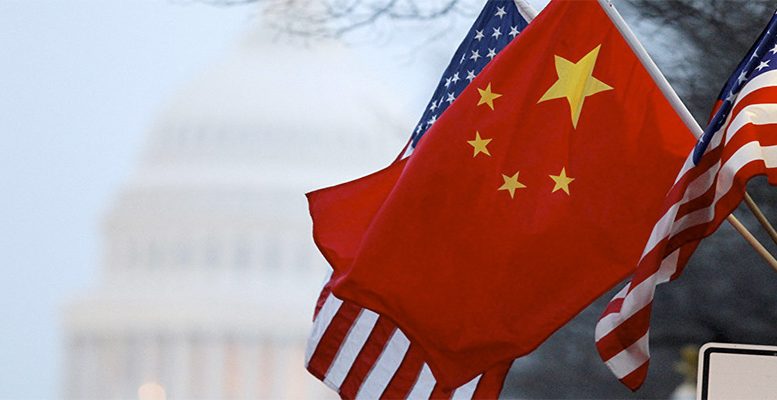There exist basically two contradictory visions of the Chinese future economy, and this is what the Washington attacks are about. One is to force China to open its economy on terms dictated by the West, especially by U.S. multinationals. The second vision is one put in place during the first term of Xi, aiming to transform China’s huge economy into the world’s leading technology nation over the coming seven years — a tall order but one Beijing takes deadly serious. It is also integral to the vision behind Xi’s Belt and Road Initiative.
Washington is determined to push China to adhere to a document it produced in 2013 together with the World Bank during the time Robert Zoellick headed it. The document, “China 2030,” calls for China to complete radical market reforms. It states, “It is imperative that China … develop a market-based system with sound foundations … while a vigorous private sector plays the more important role of driving growth.” The report, co-signed then by the Chinese Finance Ministry and State Council, further declared that “China’s strategy toward the world will need to be governed by a few key principles: open markets, fairness and equity, mutually beneficial cooperation, global inclusiveness and sustainable development.
Sanctions
The China sanctions are being drawn up by the Office of the United States Trade Representative (USTR). The USTR’s first report, some 200 pages, explicitly goes after what it calls China’s unfair trade practices, accusing it of disregard for intellectual property rights, discrimination against foreign firms, and use of preferential industrial policies to “unfairly” bolster Chinese firms.
In effect, Washington and the latest trade salvos are intended to tell China to keep its place in the U.S. version of a globalized liberal world where the state is not allowed to play any significant role — one where decisive power is held by a multinational corporate elite. Xi, having just consolidated his position with no restrictions on his term of office and consolidating his role as no previous Chinese leader since Mao Zedong, is not about to revert to what China sees as bowing to foreign pressures on its economic sovereignty.
Privately, as I have confirmed in numerous discussions in China in the years since the 2008 financial crisis, China views the United States as a declining hegemon, much like the British Empire after 1873. It is determined to prepare a multipolar alternative to the post-1990 U.S. “sole superpower.” Its close recent bonds with Russia include preparing gold-backed currencies; alternatives to the West’s Society for Worldwide Interbank Financial Telecommunication; and military defenses against any potential U.S. threat in the South China Sea or elsewhere. Notable in this light, the first trip abroad of new Chinese Defense Minister Wei Fenghe was to meet his Russian counterpart and signal to Washington the close ties of the two Eurasian powers. The Chinese view the U.S. as a former industrial power whose debt is out of control and whose “free market” model has manifestly failed America, let alone the world.
An April 3 editorial in the official, Beijing-based Global Times newspaper suggests China has no intent to back down or revert to the World Bank agenda. It declares, “Washington wanted to demonstrate its authority to the world, but unfortunately it gambled badly. The entire U.S. elites have overestimated the strength and execution.” The editorial continues, “There is no way for the U.S. to rebuild the hegemony that elites in Washington picture. As globalization and democracy have dented the foundation for that hegemony, the U.S. lacks the strength, will and internal unity needed. In fact, the U.S. has found it difficult to subdue Iran and North Korea, not to mention major countries like China. Washington cannot rule the world as an empire.”
It’s hard to avoid the conclusion that this will not end in any victory for Trump or the U.S. economy. The reaction of the bloated U.S. stock markets to recent escalations suggest he risks popping the greatest speculative bubble in U.S. stock market history, something that would trigger a financial crisis far worse than that of 2008. All of which suggests the old saying: People who live in glass houses shouldn’t throw stones.
The U.S. economy is in no shape to win such a confrontation, nor will Xi back down. This could get very nasty. China is responding very carefully and in measured moves.
F. William Engdahl is a strategic risk consultant and lecturer who holds a degree in politics from Princeton University. His books include “A Century of War: Anglo-American Oil Politics and the New World Order” and “Target China: How Washington and Wall Street Plan to Cage the Asian Dragon.”





